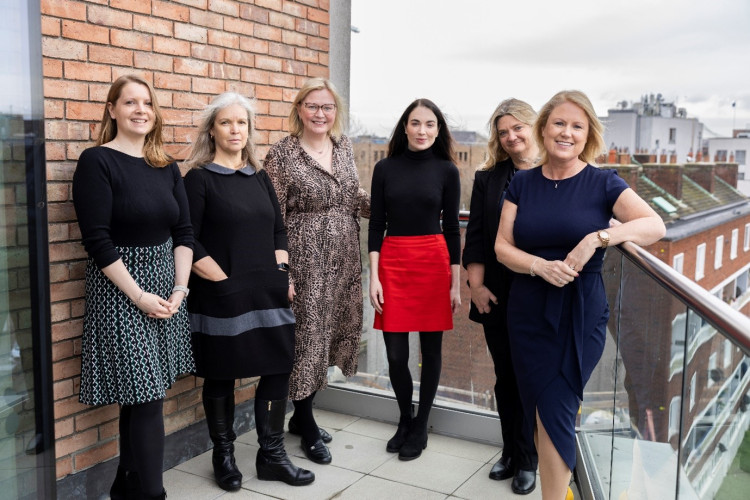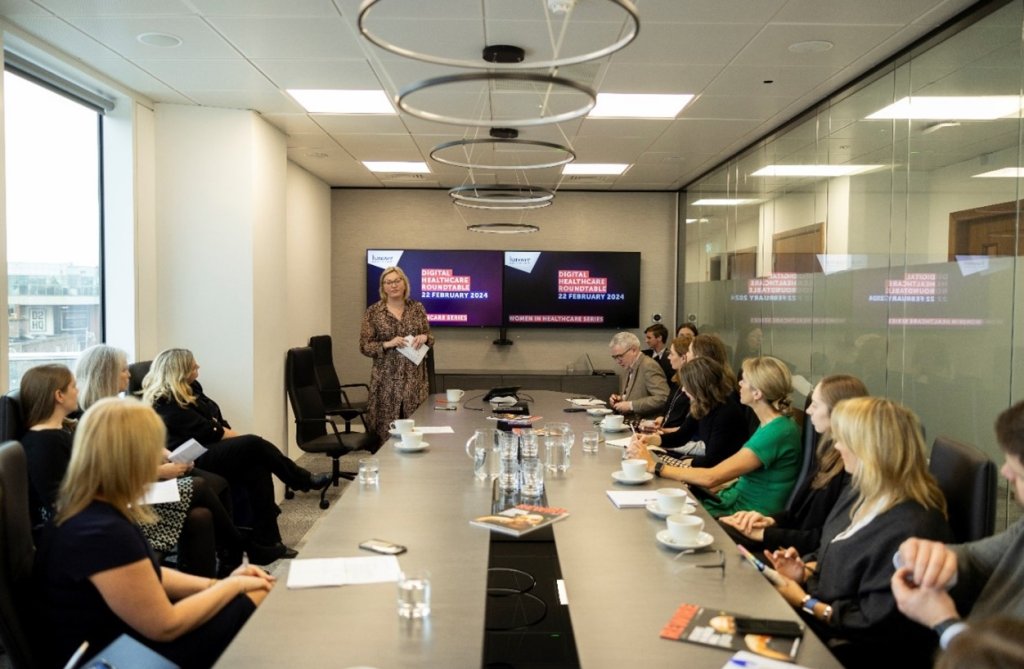As we celebrate International Women's Day, a time to commemorate the social, economic, and political achievements of women around the world, we turn our attention to a sector where female leadership is transforming the provision of services in Ireland: healthcare. Women in healthcare in Ireland are not just participating; they are leading the way in the research, policy and innovation required for digital health transformation.
Hanover Dublin recently had the privilege of hosting the first roundtable in our 'Women in Healthcare' series, which aims to shine a spotlight on the remarkable contributions of women in Irish healthcare. We kicked off the series with a session focused on the advancements and impact of digital health in Ireland, hearing from the women who are redefining Ireland's digital health landscape.
From innovative start-ups to ground-breaking research and leadership, our diverse roster of speakers included healthcare practitioners and influential thought leaders, as well as public officials involved in the drafting of the Health Information Bill.
Ireland’s Digital Health Landscape
Every week, we hear of new innovations in the digital healthcare space in Ireland, with companies at the cutting edge of technology and healthcare provision. From a policy perspective, this is a timely moment to discuss digital healthcare, particularly in an Irish context. In recent weeks, the Irish Government has listed the Health Information Bill for priority drafting. While in Brussels, the European Health Data Space is being negotiated, with Member States seeking to strike a balance between privacy and enhancing the utility of health information. Both provide a legislative and governance framework nationally and at EU level for the movement of electronic health information for primary and secondary use. This will support digital health and social care, as well as further research and innovation.
Roundtable Insights
The roundtable provided a platform for an open and insightful discussion about the advancements in digital healthcare in Ireland and the unique contributions made by women in the field. One of the key topics was the integration of digital health solutions into existing healthcare systems, and how tech can play a role in enabling healthcare providers to do it better, not different. Participants highlighted how telehealth, electronic health records (EHRs), and health data intelligence can transform patient care and expand the delivery of care beyond the four walls of a hospital. We also delved into the challenges of implementing such technologies, from a dearth of Irish patient data to achieving interoperability among disparate systems and ensuring patient-centred care remains at the heart of technological advancements.
The roundtable also addressed the broader implications of digital healthcare for the Irish population, such as improved access to care in rural areas, more personalised treatment plans, and the potential for data to inform public health policies. Participants shared success stories of initiatives that have had a significant impact for patients in Ireland. For example, we heard from @Dr Jennifer Doran about the use of technology to improve access to healthcare for remote communities on Ireland's offshore Islands, supported by Cisco and from @Una Kearns about myPatientSpace, a digital platform by a female-led start-up that enables providers to improve patient care via remote monitoring, appointment management and personalised patient journeys.
Participants also shared learnings and best practice; @Amanda Green spoke about Oracle Health’s experience in the UK, highlighting the power of linking data to gain new insights. One initiative is addressing health inequalities through targeted health checks – using data to identify cohorts at greater risk of experiencing health inequalities, and proactively inviting these groups to attend a health check to help identify any underlying health conditions.
Despite these impressive initiatives and significant progress in advancing digital health solutions, roundtable participants identified a number of challenges that leave Ireland trailing behind its European counterparts in the full integration of digital healthcare.
Similarly, as we acknowledged the remarkable contributions and leadership roles women have occupied within this space, the conversation was underscored by the obstacles they have also faced as women throughout their careers. As one of our participants highlighted, 'There is equality of opportunity and there's equality of outcomes – and they are not the same’. Enduring challenges including underrepresentation of women in leadership positions, and the entrenched bias that perpetuate inequality serve as stark reminders of the continuing struggle for gender parity. The strides we have made in gender equality are commendable, but they bring into sharp relief the disparities that persist.
The first roundtable in our 'Women in Health' series was a testament to the integral and influential role that women play across every dimension of Ireland's health sector. We look forward to continuing the conversation in our upcoming events.







